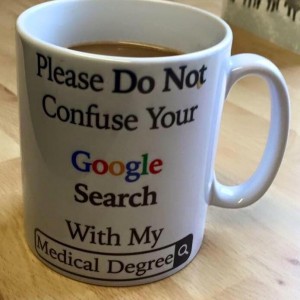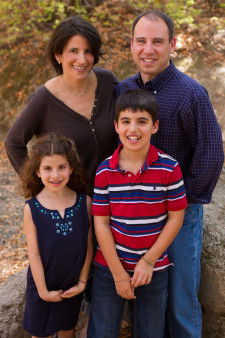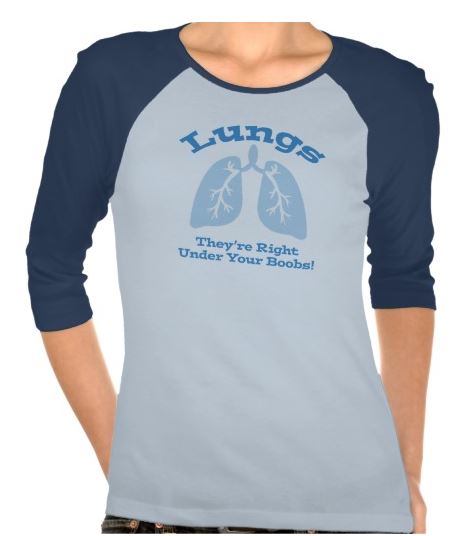Dear Doctors: Please Do Not Confuse Your Medical Degree with my Google Search
A friend posted this picture on Facebook:
LOL, right? No. Not for me. That mug/meme may seem like a silly, harmless joke. But, the message, and the sentiment behind it, is offensive and detrimental to the doctor-patient relationship.
My oncologist is an exceptional doctor. I chose him with care. He came highly recommended and I trust him. Well, I trust him like 95%. My “type A” tendencies are showing a little here. I know some patients are comfortable turning over 100% of the control and healthcare decision making to their doctors. That isn’t how I work. Especially when I know that my ROS1 status makes me a rare patient, likely to need a treatment path different from most other lung cancer patients in order to maximize my survival time.
Now, I know I don’t have a medical degree to match my doctor’s. But, I do have a few other things going for me. First is time; I have lots of time to spend researching (advanced cancer has a way of clearing one’s calendar). Second is focus; I only have to know about my one single diagnosis, not a patient load of hundreds. Third is vested interest. As dedicated as my doctor is, there is no one more invested in my well-being than me.
So, what do I do? The day I was diagnosed was the day I started a new hobby: medical research. I hit Google and I hit it hard. It’s not my favorite hobby, but I’m pretty dedicated. Stage IV is a powerful motivator. I have found my way to worldwide experts in ROS1. I have connected with other ROS1+ patients and compared treatments. I have read articles in the medical journals and I have read articles from some pretty “alternative” sources. I won’t deny, some of the information I have found, and/or my comprehension of it, has been utter crap. But, a lot of the information I have found has been absolutely critical to my well-being and treatment choices these last 2.5 years.
The mug/meme may be funny and I can definitely sympathize with doctors juggling heavy patient loads and dumb or redundant questions from patients without medical training. Honestly, I feel bad for them and I am hypersensitive to both their time constraints and their expertise. And, yet. The number one piece of advice patients get over and over is “you must be your own advocate!” So, I try to put aside my sensitivities about doctors’ egos and time restrictions when I’m fighting for my life. The truth of the matter is that sometimes my Google searches come up with better treatment ideas than the doctor with the medical degree reviewing my case. And, that’s not to disparage the doctor. That’s a testament to how complex medicine can be. It’s impossible for an oncologist to have knowledge about cutting edge treatments for every type of cancer. But, sometimes a laywoman’s Google research can uncover useful life-improving, even life-extending ideas. Sure, take it with a grain of salt. Discuss those search results with the doctor. But, don’t dismiss them entirely. And, ditch any doctor who’d tell you to do so (or thinks it’s cute to have a mug saying as much). Because a doctor who doesn’t have the answer to every question is OK, but a doctor who thinks s/he does is not.



